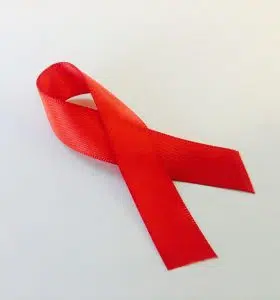
Dr. Roula Hawa, Assistant Professor in Family Studies and Human Development / Brescia Media Releases
Dr. Roula Hawa, assistant professor at Brescia University College has been awarded a $40,000 Innovation Grant by the Canadian Foundation for AIDS Research (CANFAR).
The grant is to help expand on her study titled “Developing an Innovative, Youth-Driven and Resilience-Based HIV Prevention Intervention for Young People from Middle Eastern and North African Communities (MENA) in Canada“.
The study focuses on sexual health and HIV prevention for youth between the ages of 16-29 in MENA communities, which includes about 19 countries.
This comes as the third grant that Dr. Hawa and her research team have received for their study. Two grants from the Canadian Institutes of Health Research supported the team in initiating the study.
Starting in February, Dr. Hawa and her research team will be using the grant money to conduct group interviews with youth from MENA regions. The data collected will be used to create a Canada-wide survey which will particularly target the MENA communities. The goal is to understand the youth’s sexual health needs and understand what puts them at risk in HIV. The next step is to create interventions for youth based on what they want to see.
“Remember, any intervention has to be meaningful for youth” Dr. Hawa said.
Dr. Hawa started her study in 2017, when Canada saw about 25,000 Syrian refugees enter the country. Her and her research team were approached by the community to begin this study because sexual health services were sparse for youth coming from these regions. Being a member of the MENA region herself, she was able to relate to immigrants arriving to Canada.
“A lot of the community-based organizations are not familiar with the culture,” she says “they’re not able to develop culturally relevant resources and material for them.”
The professor says the pandemic has made the importance for this study even more clear, while we pay attention to immigrants and global patterns.
“Since COVID, we’re actually opening our doors for even more immigrants. So for us it’s very important. Anything that’s happening globally will impact what’s happening here in Canada.”
In the new year, the survey will be electronically distributed. Therefore Dr. Hawa says the pandemic shouldn’t have a large impact on how they administer things.
“By the time we get to that stage in the New Year, because we have to develop to the survey piloted and then administer it,” she says “I would say by that time, we should probably be okay.”





Comments